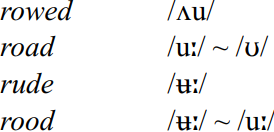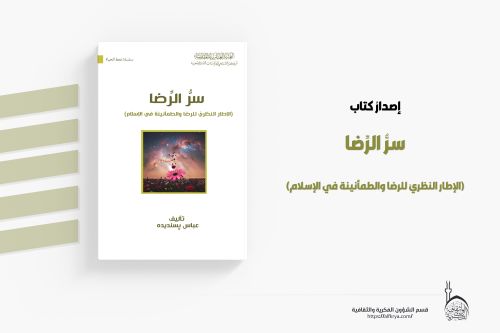

Grammar


Tenses


Present

Present Simple

Present Continuous

Present Perfect

Present Perfect Continuous


Past

Past Continuous

Past Perfect

Past Perfect Continuous

Past Simple


Future

Future Simple

Future Continuous

Future Perfect

Future Perfect Continuous

Passive and Active


Parts Of Speech


Nouns

Countable and uncountable nouns

Verbal nouns

Singular and Plural nouns

Proper nouns

Nouns gender

Nouns definition

Concrete nouns

Abstract nouns

Common nouns

Collective nouns

Definition Of Nouns


Verbs

Stative and dynamic verbs

Finite and nonfinite verbs

To be verbs

Transitive and intransitive verbs

Auxiliary verbs

Modal verbs

Regular and irregular verbs

Action verbs


Adverbs

Relative adverbs

Interrogative adverbs

Adverbs of time

Adverbs of place

Adverbs of reason

Adverbs of quantity

Adverbs of manner

Adverbs of frequency

Adverbs of affirmation


Adjectives

Quantitative adjective

Proper adjective

Possessive adjective

Numeral adjective

Interrogative adjective

Distributive adjective

Descriptive adjective

Demonstrative adjective


Pronouns

Subject pronoun

Relative pronoun

Reflexive pronoun

Reciprocal pronoun

Possessive pronoun

Personal pronoun

Interrogative pronoun

Indefinite pronoun

Emphatic pronoun

Distributive pronoun

Demonstrative pronoun


Pre Position


Preposition by function

Time preposition

Reason preposition

Possession preposition

Place preposition

Phrases preposition

Origin preposition

Measure preposition

Direction preposition

Contrast preposition

Agent preposition


Preposition by construction

Simple preposition

Phrase preposition

Double preposition

Compound preposition


Conjunctions

Subordinating conjunction

Correlative conjunction

Coordinating conjunction

Conjunctive adverbs


Interjections

Express calling interjection


Grammar Rules

Preference

Requests and offers

wishes

Be used to

Some and any

Could have done

Describing people

Giving advices

Possession

Comparative and superlative

Giving Reason

Making Suggestions

Apologizing

Forming questions

Since and for

Directions

Obligation

Adverbials

invitation

Articles

Imaginary condition

Zero conditional

First conditional

Second conditional

Third conditional

Reported speech


Linguistics

Phonetics

Phonology


Semantics


Pragmatics

Linguistics fields

Syntax

Morphology

Semantics

pragmatics

History

Writing

Grammar

Phonetics and Phonology

Semiotics


Reading Comprehension

Elementary

Intermediate

Advanced


Teaching Methods

Teaching Strategies
Upgliding diphthongs GOAT
المؤلف:
Peter Trudgill
المصدر:
A Handbook Of Varieties Of English Phonology
الجزء والصفحة:
170-8
2024-03-05
1214
Upgliding diphthongs GOAT
As we saw above, the Long Mid Mergers have not taken place in East Anglia. There are therefore two vowels at this point in the East Anglian vowel system. Paralleling the vestigial distinction in the front vowel system between the sets of made and maid, corresponding to the distinction between the ME monophthong and diphthong, there is a similar distinction in the back vowel system which, however, is by no means vestigial in the northern part of the area. The distinction is between /u:/ =  , descended from ME
, descended from ME  , and /Λu/ =
, and /Λu/ =  , descended from ME /ou/. Thus pairs such as moan ≠ mown, road ≠ rowed, nose ≠ knows, sole ≠ soul are not homophonous.
, descended from ME /ou/. Thus pairs such as moan ≠ mown, road ≠ rowed, nose ≠ knows, sole ≠ soul are not homophonous.
ME  plus /l/ also gives /Λu/, as in hold. Words such as bowl and shoulder have /au/ in the older dialect, however.
plus /l/ also gives /Λu/, as in hold. Words such as bowl and shoulder have /au/ in the older dialect, however.
One further complication is that, in modern speech, adverbial no has /u:/ while the negative particle no has /Λu/: No, that’s no good  .
.
There are two additional complications. One is that, as we have already seen, words descended from the ME monophthong may also have  , i.e. road can be either
, i.e. road can be either  or /ru:d/.
or /ru:d/.
Secondly, as was mentioned briefly above, many words from the set of GOOSE which are descended from ME /o:/ may have /u:/ rather than  . That is, words such as boot may be pronounced either
. That is, words such as boot may be pronounced either  or /bu:t/. In the latter case, they are of course then homophonous with words such as boat. Therefore rood may be homophonous either with rude or with road which, however, will not be homophonous with rowed.
or /bu:t/. In the latter case, they are of course then homophonous with words such as boat. Therefore rood may be homophonous either with rude or with road which, however, will not be homophonous with rowed.
It is probable that this alternation in the GOOSE set is the result of lexical transfer, perhaps under the influence of earlier forms of RP, from  to /u:/. Forms in /u:/ are more typical of middle-class than of working-class speech; and phonological environment can also have some effect:
to /u:/. Forms in /u:/ are more typical of middle-class than of working-class speech; and phonological environment can also have some effect:  before /l/ as in school has much lower social status than it does before other consonants. Words which in my own lower-middle class Norwich speech have
before /l/ as in school has much lower social status than it does before other consonants. Words which in my own lower-middle class Norwich speech have  rather than /u:/ include: who, whose, do, soon, to, too, two, hoot, loot, root, toot, soup, chose, lose, loose, through, shoe. I have no explanation at all for why, for example, soon and moon do not rhyme in my speech. There is also considerable individual variation: my mother has
rather than /u:/ include: who, whose, do, soon, to, too, two, hoot, loot, root, toot, soup, chose, lose, loose, through, shoe. I have no explanation at all for why, for example, soon and moon do not rhyme in my speech. There is also considerable individual variation: my mother has  in chose and root, for instance, and my late father had /u:/ in who. Note that this alternation never occurs in the case of those items such as rule, tune, new etc. which have historical sources other than ME/o:/; these words always have
in chose and root, for instance, and my late father had /u:/ in who. Note that this alternation never occurs in the case of those items such as rule, tune, new etc. which have historical sources other than ME/o:/; these words always have  . For very many speakers, then, rule and school do not rhyme.
. For very many speakers, then, rule and school do not rhyme.
In summary:

Two modern developments should also be noted. First, the phonetic realization of /u:/ in the northern area is currently undergoing a rather noticeable change, with younger speakers favoring a fronter first element  . This is more advanced in Lowestoft, Gorleston and Yarmouth than in Norwich. Secondly, in the southern zone, the moan: mown distinction is now very recessive, so that for most speakers /Λu/ is used in both lexical sets and /u:/ has disappeared. As a consequence, GOOSE words can no longer alternate in their pronunciation.
. This is more advanced in Lowestoft, Gorleston and Yarmouth than in Norwich. Secondly, in the southern zone, the moan: mown distinction is now very recessive, so that for most speakers /Λu/ is used in both lexical sets and /u:/ has disappeared. As a consequence, GOOSE words can no longer alternate in their pronunciation.















 قسم الشؤون الفكرية يصدر مجموعة قصصية بعنوان (قلوب بلا مأوى)
قسم الشؤون الفكرية يصدر مجموعة قصصية بعنوان (قلوب بلا مأوى) قسم الشؤون الفكرية يصدر مجموعة قصصية بعنوان (قلوب بلا مأوى)
قسم الشؤون الفكرية يصدر مجموعة قصصية بعنوان (قلوب بلا مأوى) قسم الشؤون الفكرية يصدر كتاب (سر الرضا) ضمن سلسلة (نمط الحياة)
قسم الشؤون الفكرية يصدر كتاب (سر الرضا) ضمن سلسلة (نمط الحياة)

















